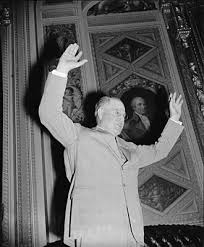Understanding the Meaning of Filibuster

Introduction to Filibuster
The term “filibuster” is often heard in discussions surrounding legislative processes, particularly in the United States Senate. It refers to a tactic used to prolong debate and delay or prevent a vote on a proposal, effectively allowing a minority to exert influence over the legislative agenda. Understanding the filibuster is crucial for comprehending how legislative negotiations unfold and the broader implications for democratic governance.
The Mechanics of the Filibuster
Traditionally, a filibuster occurs when one or more senators engage in prolonged speech-making or other forms of delay that aim to halt legislative action. According to Senate rules, a minimum of 60 votes is required to close debate on most matters—a threshold known as invoking cloture. Thus, if a minority party wishes to stall a bill they oppose, they may resort to a filibuster, forcing the majority party to garner a larger consensus to move forward. The use of the filibuster has evolved significantly, particularly with recent partisan divides influencing its frequency and context.
Recent Events Surrounding the Filibuster
In recent years, the filibuster has sparked intense debate, particularly during discussions on critical legislation regarding voting rights and infrastructure. The Biden administration has faced challenges in advancing its legislative agenda, with some key initiatives stalled due to the filibuster. In 2021, for instance, Democrats attempted to bypass the filibuster in order to pass the For the People Act—a landmark bill aimed at expanding voting rights—but fell short of the necessary votes to revoke the filibuster entirely. This ongoing friction highlights the filibuster’s role not merely as a procedural tool, but as a significant factor influencing the political landscape.
Conclusion
The filibuster remains a contentious topic in contemporary political discourse, raising questions about its future and its impact on legislative efficiency. Some lawmakers advocate for reforms that could limit its use or change the rules governing it, potentially making it easier to pass measures with a simple majority. As American politics continue to evolve, understanding the filibuster and its implications will be vital for citizens and policymakers alike. Its capacity to shape legislative outcomes places it at the forefront of discussions about democracy and representation in the modern era.









